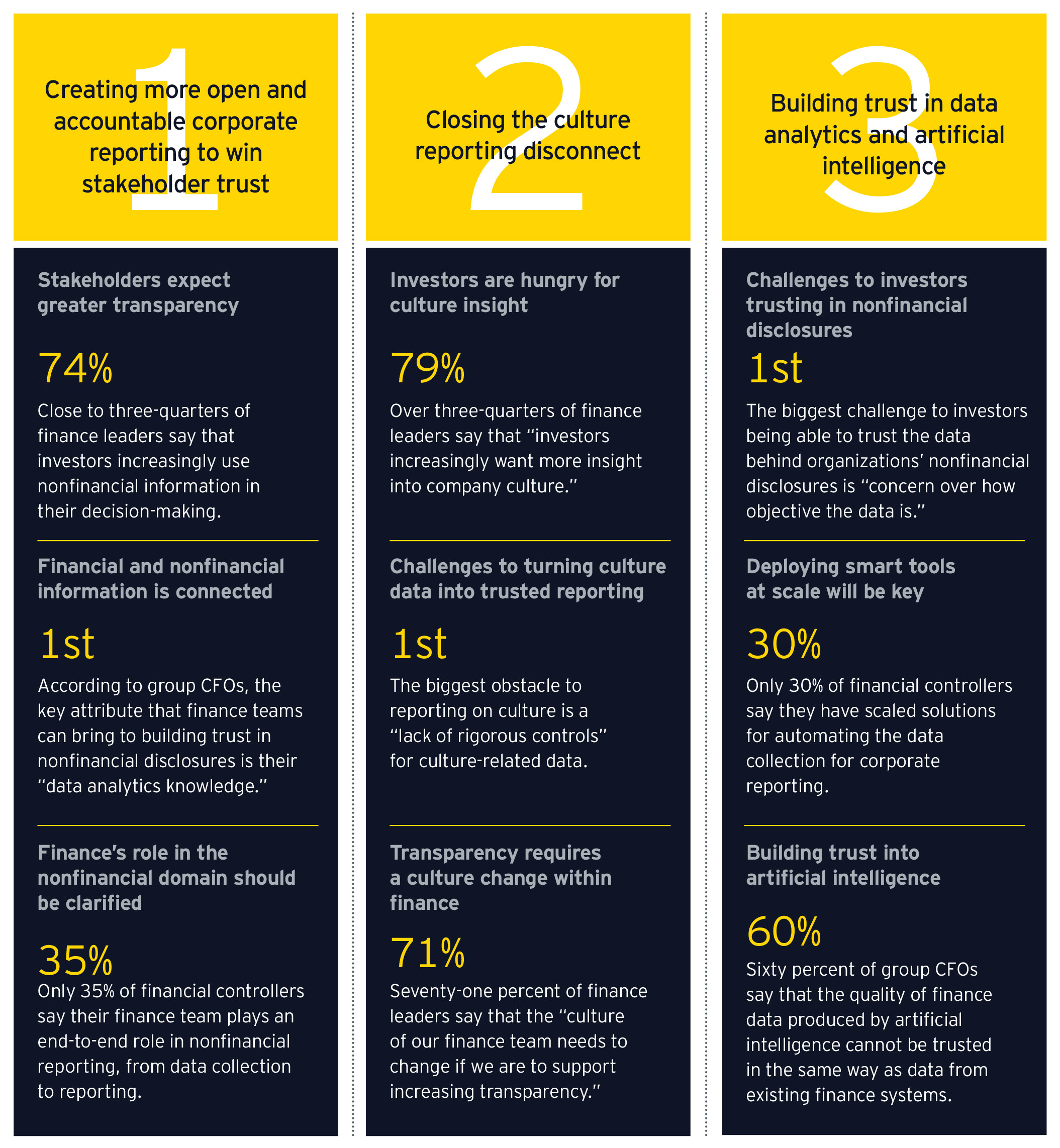As mentioned in the picture above, one of the focal points is to give a more important role to financial teams. This can be summarized into two major priorities:
- Give the finance department a more central role in driving an open and accountable company culture (i.e. focusing on transparency and openness).
- Clarify the role of the finance department in nonfinancial reporting.
By proceeding this way, more information can be shared with stakeholders - assuming the information shared is credible and trustworthy.
Therefore, the goal is to have a financial department that has a large set of skills and knowledge to create nonfinancial information that is useful and reliable. Because the key to success is having a clear view of the available data; knowing what data is in demand and how to convert the data into useful information.
Generating data using automated data collection
On the question of how data should be generated (given time and resource constraints), one of the priorities is to put in place advanced tools to gather and analyze large amounts of data. In the survey mentioned earlier, it is stated that only 30% of respondents have a scaled solution for automating data collection for corporate reporting, when clearly RPA (Robotic Process Automation) can streamline the close process, and reports can be prepared faster and with fewer people.
The less time people need to spend on collecting data and producing reports, the more time they have to examine and understand it. Understanding data provides valuable insights which can be used to improve the overall (financial) performance. Carly Fiorina (former president and chair of Hewlett-Packard) summarized it fittingly when she said: ‘the goal is to turn data into information, and information into insight’.



